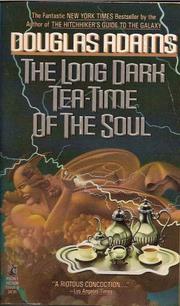I always think it's strange to read a book whose main character is nothing like me as a person. There's always this assumption that I will be able to inhabit the primary personality of the story to some extent - maybe I only feel this way when the book is written in first person, because now that I'm thinking about it, there are quite a few books I love who's main figure is a man or an old woman or on drugs or living in another era, etc. I'm not entirely sure now about my theory, but I do know that the entire time I was reading this book, I felt a little bit off balance about how different from me I found Pippa Dunn, Alison Larkin's fictional alter ego in this semi-autobiographical novel. It's not that Alison Larkin and Pippa Dunn are both English-raised adoptees with American birth parents. The adoption part didn't really factor into it all, even though it's the central theme of the story.
Pippa (and Alison, I believe) are theater girls, cheery, energetic, enthusiastic, goody-too-shoes types who love show tunes and prefer chocolate milk to cocktails. They are messy, impulsive, romantic types dripping with spontaneity who jump at the chance to sing in public. I don't understand people like this at all. I like bluesy rock bands, bourbon and 7's, sarcasm, black humor, inconspicuousness, tidiness, and gritty realism. I do not pine after men who write emails that say cheesy things like, "You open your soul for a second, so it touches mine." I rarely get sucked in to other people's emotional turmoil. I just wanted to shake Pippa and smack some sense into this girl. Don't fall for that guy's ridiculous romantic claptrap! Don't take a job from a family member with no paycheck! Don't get dragged in to that drama! Don't pay off one credit card with another!!! Aaaaurrrrrgh!!!
I bought this book as a Christmas present for Wendy and our other friend Val because it sounded like an intriguing story and we're all a bunch of Anglophiles who once travelled through the UK together. I loved how Larkin compares the two cultures with humor and understanding, appreciating and skewering each of them equally. However, I did sometimes feel like her comments were based on fairly generic stereotypes, but then again I guess most humor is based on generic stereotypes. There aren't any really deep revelations here about the trans-Atlantic culture clash. I think Bill Bryson has more interesting and funnier things to say about it in his memoir, Notes from a Small Island. Not all English people are emotionally stunted intellectuals and not all Americans are artistic drama queens, for example. And I'd just like to make the argument that if Americans don't know how to make a proper cup of tea, Brits can't produce a cup of coffee that doesn't taste like warm dirt. I did love how all the English people in the book eat tons of toast. That is true.
What Larkin does best is present a realistic picture of what it is to be adopted and what a struggle it is to go in search of your birth parents. She makes good, subtle arguments for why the US should change it's adoption laws to make it easier for biological parents and children to contact one another and share information such as health histories. She helps explain the kind of support adoptees need as they work on piecing together an identity once they meet the people who gave them life. As an advocate for adoptees, I think she comes out swinging. Here's more from her website.
As for me, I'm headed over to my grocery store's international food aisle to pick up a tube of Smarties and a bag of Maltesers. But what I'd really kill for is a Flapjack, any flavor!
Sunday, January 3, 2010
Subscribe to:
Post Comments (Atom)


I had to cringe when I read about the tea. I remember I made tea for Stephen once when we first started dating. He grimaced when he drank it. I did it all wrong. What can I say? I am a coffee drinker. I never did learn to appreciate a good cup of tea while I was over there.
ReplyDelete